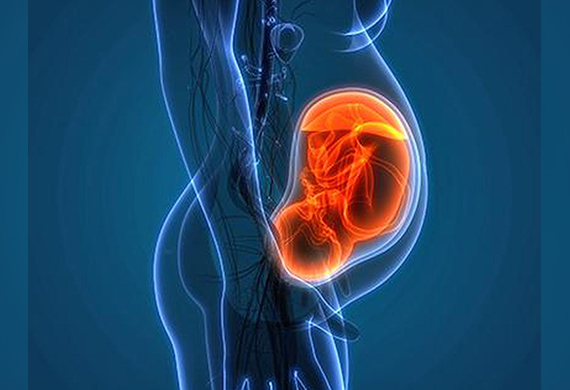
Rising C-sections, lack of sunlight exposure affecting women's reproductive health
By: WE Staff | Friday, 25 March 2022
According to Human M. Fatemi, Senior Consultant Gynecology and Reproductive Medicine More Indian women opting for delivery through Caesarean (C-section) and less numbers getting direct exposure to sunlight can have a long-term adverse effect on their overall reproductive health.
“The 5 th National Family Health Survey revealed that the national C-section rate is 21.5 per cent. This is nearly double that of World Health Organization’s (WHO) ideal of 10-15 per cent. But the major concern is that this rate jumps to 47.4 per cent when it comes to private centres. This unambiguous rise in C-sections and the difference between the same procedures in government run hospitals versus private hospitals may have serious implications for women’s health, their future fertility, ability to bear children in future and the likelihood of a live birth, all are at risk,” Fatemi said.
The most important point is not about the choice to have a second or subsequent child but the ability to do so, he says.
Fatemi also said there is a definitive association between vitamin D levels in women and their ovarian reserves.
“As part of the basic fertility assessment, blood tests are taken to measure Vitamin D concentration and transvaginal ultrasound scans are performed on day 2-5 of the cycle to determine Antral Follicle Count (AFC). In humans, exposure of the skin to sunlight is the main and critically important source of vitamin D,” he added.
“It is our choice of lifestyle, from the clothes that we wear to the skin lotions that we use that give us lower exposure to natural sunlight. This choice may be a cause of our lower levels of Vitamin D and may unknowingly be preventing us from getting the other associated health benefits of direct exposure to sunlight,” he further said.
Most Viewed
- 1 Women's Health Startup HerMD Closing Doors Amid Industry Challenges
- 2 5 Famous Women in Indian Armed Forces
- 3 Saudi Women No longer Require Male Permission for Clothing Choices, says Prince MbS
- 4 Kolkata Medtech Startup Innovodigm Raises Rs 5.5 Crore Seed Funding Led by IAN Group
- 5 Yamunanagar's Kashish Kalra Honoured after Securing 111th Rank in UPSC Civil Services Exam
- 6 Madurai Appoints Its First Woman Corporation Head
- 7 IAS Vijayalakshmi Bidari Appointed as the new Nagpur Divisional Commissioner
- 8 American Entrepreneur Lucy Guo Overtakes T Swift to become Youngest Female Billionaire
- 9 ICC Women's World Cup 2025 Trophy Showcased at Indore's Holkar Stadium
- 10 Aparna Saxena's Beauty Venture AntiNorm Launches in India
- 11 Vidya Nataraj Co-Founded BlueStone Jewellery & Lifestyle files IPO
- 12 5 Women Freedom Fighters of India
- 13 Dr. G Krishnapriya appointed as CEO for Trichy
- 14 M3M & Sirona Partner to Introduce Menstrual Hygiene Vending Machines in 15 Locations
- 15 Punjab Govt launches SHE Cohort 3.0 Supporting Tech-led Women Startups
- 16 Indian origin Lawyer, Sweena Pannu appointed as the US New Superior Court Judge
- 17 The Aurora Tech Award recognizes 4 Indian Women-led Startups
- 18 Kerala's Republic Day parade featured an all-female tableau
- 19 Manisha Kabbur Becomes Karnataka's First Woman International Karate Coach
- 20 Director K. S. Ravikumar's Daughter Maalica Ravikumar Launches Life Coaching Company 'Evergrowth Academy' for Women
- 21 Leezu's Raises Pre-Seed Funding to Accelerate Growth in Sexual Wellness Industry
- 22 Sattu: Super-easy summer drink for PCOS gut healing
- 23 Swathi Nelabhatla creates Sitha App, India's First Women-Exclusive Gig Platform
- 24 7 Timeless Female Kathak Dancers & their Iconic Legacies
- 25 Meet 7 Iconic Women Architects of Modern India & their Most Impactful Work
- 26 This Woman-led Insuretech Startup is Helping Bridge the Education Financing Gap in India
- 27 Women Leaders Share Lessons Learnt from India Women's WC Win
- 28 5 Enterprising Women Founders Powering Singapore's Tech & Innovation Landscape
- 29 4 Women. 4 Stories. One Vision for Smarter, Stronger Healthcare
- 30 Global Gender Gap Narrows to 68.8%, But Full Equality 123 Years Away: WEF Report 2025
- 31 Changemakers: 7 Women Entrepreneurs Taking the Make in India Movement Forward
- 32 Meet Lucy Guo, The Youngest Self-Made Female Billionaire Disrupting Tech
- 33 How Women are Driving India's Festive Online Shopping Surge


.jpg)



